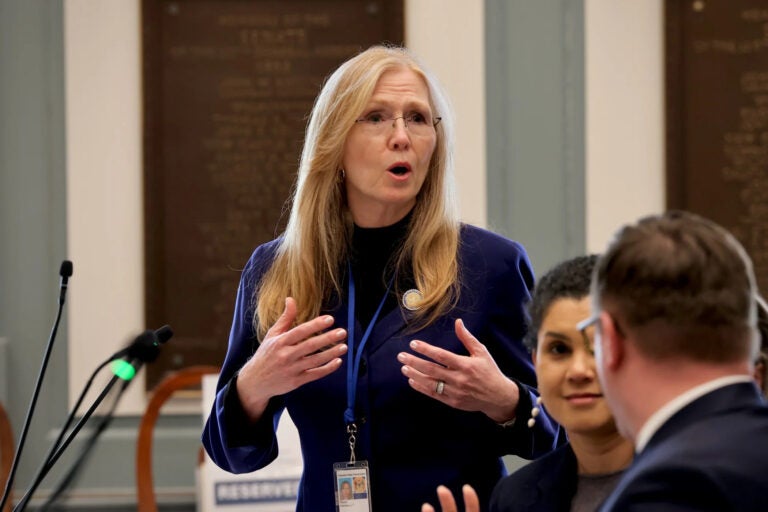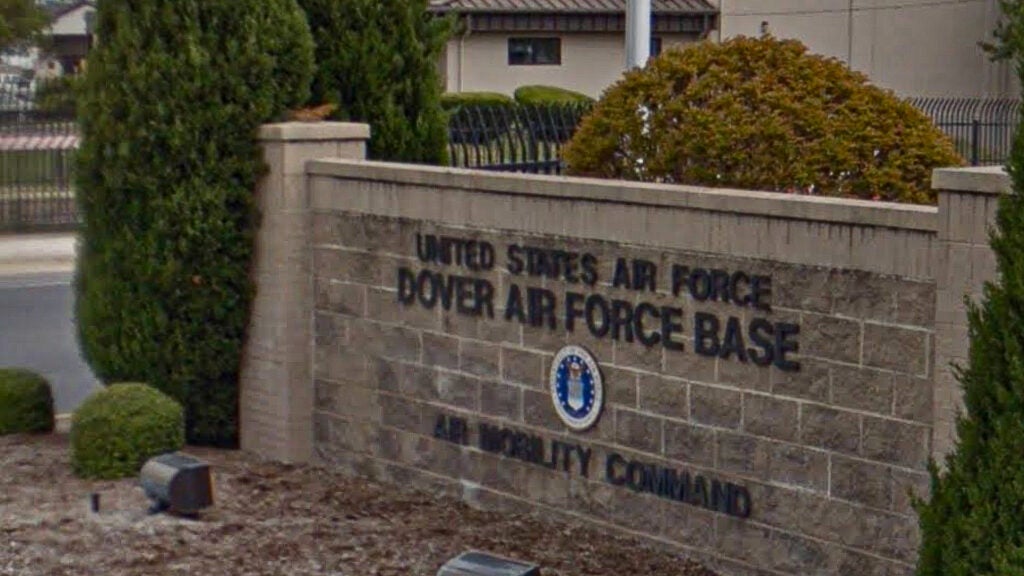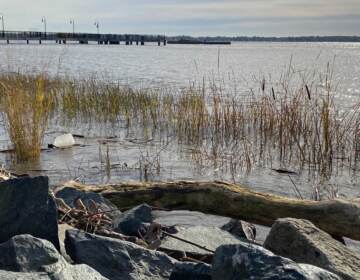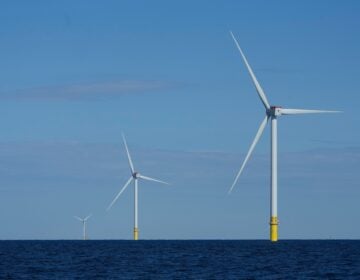Nuclear energy task force to consider feasibility for Delaware’s energy needs
The task force could consider putting a small nuclear reactor at the Dover Air Force Base.
Listen 1:01
Delaware state Sen. Stephanie L. Hansen, pictured April 10, 2025, is chair of the Delaware Nuclear Energy Feasibility Task Force. (Emma Lee/WHYY)
What are journalists missing from the state of Delaware? What would you most like WHYY News to cover? Let us know.
Delaware could be one of the first states to build small nuclear reactors to help power the state.
State lawmakers held the first meeting of the Delaware Nuclear Energy Feasibility Task Force on Monday. Its mission is to examine whether small modular reactors are safe for people and the environment and if they’re cost-effective. The group will also consider construction requirements and possible sites.
According to the International Atomic Energy Agency, SMRs are advanced nuclear reactors that have a power capacity of up to 300 megawatts per unit, which is about one-third of the generating capacity of traditional nuclear power reactors.
How Delaware can develop more energy has been a subject of much recent debate. The state imports about 60% of its electricity. Delaware lawmakers took away utility provider Delmarva Power’s ability to own its own generation in 1999. PJM Interconnection, a regional energy grid, supplies power to Delaware, Washington, D.C. and part or all of 13 states — including all of Pennsylvania and New Jersey. Delaware and Pennsylvania’s governors have criticized PJM for failing to efficiently connect new resources to its grid and high electricity prices for ratepayers.
Delaware Public Advocate Jameson Tweedie, who’s also member of the task force, said a massive increase in demand for power in Delaware and across the country is projected because of the rise of data centers and other factors, which the state must solve to meet its mandate that renewable energy make up a certain amount of supply.
“That increase in demand for power is going to move a lot more quickly than typically, historically, generation has been able to be built,” Tweedie said. “That has real risks for both reliability and it has real implications for costs.”
Nuclear energy is seeing something of a renaissance, helped in part by executive orders from President Donald Trump boosting the industry. The four orders include rapid development and deployment of advanced nuclear technologies, reconsidering radiation exposure standards, eliminating or expediting environmental reviews of applications and funding for workforce-related opportunities. Big tech companies are also betting big on nuclear energy to fuel power-hungry data centers.
Investment firm Starwood Digital Ventures is currently pitching a massive data center for Delaware City. Critics are concerned it will drain large amounts of energy and water.
Kathryn Lienhard, an offshore wind energy research associate with Delaware Sea Grant, said nuclear power generates electricity through chain reactions that produce heat. That heat is used to make steam that spins a turbine to create the electricity. Reactors use uranium, which is radioactive, for nuclear fuel, and exposure can cause lung cancer and other diseases. Spent reactor fuel is a highly radioactive byproduct that is normally stored on site, but Lienhard said the U.S. has yet to develop a long-term storage solution for the waste.
Public anxiety about the harmful health effects of nuclear power plants grew after the worst commercial reactor accident in U.S. history at the Three Mile Island plant in 1979. The partial core meltdown at the plant near Middletown, Pennsylvania, forced the evacuation of thousands of nearby residents. Numerous studies since then found no direct negative health effects on the nearby population. Microsoft is reopening the plant to power its data centers.

Union boilermaker Martin Willis, another task force member, said members should look at deploying a small nuclear reactor at the Dover Air Force Base. He also said the public is still resistant to adopting nuclear energy.
“I hate to say it, but even with America being in an electric generation crisis because of the demands of AI data centers, Bitcoin mining, cannabis farming and a robust economy, our nation will not embrace civilian nuclear power until parts of America suffer widespread blackouts and rolling brownouts,” he said.
The task force’s next meeting is Dec. 1. The group’s chair, state Sen. Stephanie Hansen, said the group will deliver a final report, but that date is yet to be determined.

Get daily updates from WHYY News!
WHYY is your source for fact-based, in-depth journalism and information. As a nonprofit organization, we rely on financial support from readers like you. Please give today.







